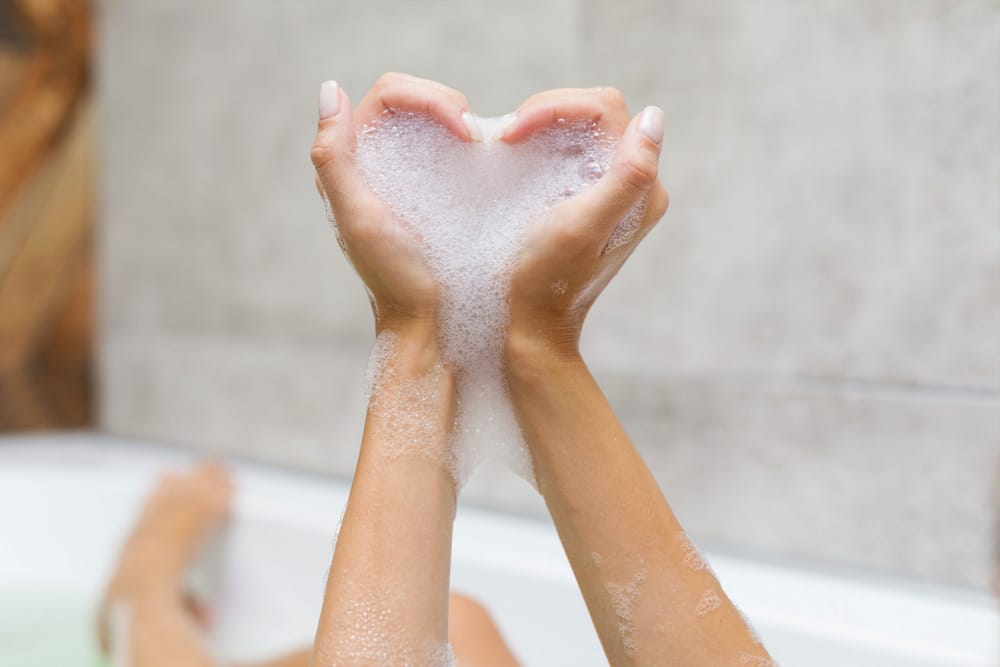If you’ve ever noticed white spots on your dishes, dry itchy skin after a shower, or a crusty ring around your faucet—chances are, you’re dealing with hard water. And if you live in Texas, you’re not alone! Much of our Lone Star State has naturally hard water due to the limestone-rich soil.
But what’s the big deal? Is hard water bad? Is soft water better? What does it all mean for your home, your body, and your budget?
Let’s break it all down, Texas-style.
What’s the Difference Between Hard Water and Soft Water?
The short version: it’s all about the minerals.
- Hard water is loaded with calcium and magnesium. These minerals sneak into your water as it moves through rock and soil.
- Soft water has had most of those minerals removed—usually through a water softener that swaps them out for sodium or potassium ions.
Neither one is unsafe to drink, but they definitely behave differently in your home.
How Do They Compare? Let’s Make It Simple:
Here’s a quick and clear look at how hard and soft water stack up in real-life ways:
1. Mineral Content
- Hard Water: Full of calcium and magnesium.
- Soft Water: Minerals removed and replaced with a bit of sodium or potassium.
2. Soap and Cleaning Power
- Hard Water: Soap doesn’t lather well, leaves behind soap scum.
- Soft Water: Makes soaps and detergents work better—and rinses clean.
3. Skin and Hair
- Hard Water: Can cause dryness, irritation, and dull hair.
- Soft Water: Leaves skin soft and hair silky-smooth.
4. Taste
- Hard Water: Earthy or metallic flavor (some folks like it!).
- Soft Water: Tastes smoother, sometimes a tiny bit salty depending on your softener.
5. Appliances
- Hard Water: Causes scale buildup, lowers efficiency, shortens lifespan.
- Soft Water: Protects and extends the life of dishwashers, washing machines, and water heaters.
6. Plumbing
- Hard Water: Deposits build up in pipes, leading to clogs and pressure issues.
- Soft Water: Keeps your plumbing cleaner and flowing like it should.
How Hard Water Affects Your Skin and Hair
Showering in hard water can feel a bit like washing up with a film left behind—and that’s exactly what it is. The minerals in hard water combine with soap to form a residue that sticks to your skin and hair.
- Dry, itchy skin? Blame hard water.
- Frizzy or lifeless hair? That buildup might be weighing you down.
Soft water, by contrast, rinses clean. You’ll notice:
- Softer, more moisturized skin
- Shinier, more manageable hair
- Less need for lotions and hair products
Who knew a water upgrade could turn your bathroom into a spa?
What About Taste?
Some people prefer the taste of hard water—especially if they grew up with it. It can have a bit more “character” thanks to the minerals. Others find it a bit… chalky.
Soft water tastes cleaner, though it might have a slightly salty taste depending on your system. If you’re using a water softener, you can always install a reverse osmosis (RO) filter for your drinking water tap. That gives you the best of both worlds: soft water for your home, and pure, delicious water for your glass.
The Appliance and Plumbing Problem No One Talks About (Until It’s Too Late)
Hard water isn’t just tough on your skin—it’s brutal on your appliances.
Over time, minerals from hard water form limescale—a crusty, rock-like deposit inside your:
- Water heater
- Dishwasher
- Coffee maker
- Washing machine
This scale reduces efficiency, increases energy costs, and leads to early appliance failure. Water heaters especially suffer; even a thin layer of scale can make them work overtime (and run up your electric or gas bill).
It doesn’t stop there. Your plumbing takes a hit, too. Hard water causes buildup inside your pipes, restricting flow and potentially causing clogs, corrosion, and leaks.
Soft water helps everything run more smoothly and last longer. Your appliances will thank you (and so will your wallet).
So… Which Is Better?
In most Texas homes, soft water is the winner—especially when you consider:
- Lower utility bills
- Better skin and hair
- Longer-lasting appliances
- Easier cleaning and better soap efficiency
Hard water might be fine if you don’t mind the taste and are okay with scrubbing soap scum weekly and replacing your water heater sooner than you’d like. But if you’re looking for comfort, savings, and peace of mind? Soft water is the way to go.
The Solution: Install a Water Softener
A water softener isn’t just a luxury—it’s a long-term solution to a long-standing problem. It removes the excess calcium and magnesium that cause buildup in your pipes, dryness on your skin, and spots on your dishes. With a professionally installed system, you can:
-
Eliminate hard water damage before it starts
-
Improve the feel of every shower and load of laundry
-
Protect your plumbing and appliances from scale buildup
-
Enjoy better-tasting, cleaner-feeling water throughout your home
If hard water has been wearing down your home and comfort, it’s time to make the switch. A water softener delivers consistent results—and a better everyday experience.
Final Thoughts: Hard Water Doesn’t Have to Be Your Reality
Hard water is common here in Texas—but that doesn’t mean you have to live with it. From better skin and hair to cleaner clothes, tastier water, and longer-lasting appliances, the benefits of soft water are clear as, well… clean, filtered water.
If you’re in Texas, let Black Tie Plumbing help you make the switch. We’ll test your water, provide honest advice, and install a system tailored to your home and lifestyle.





